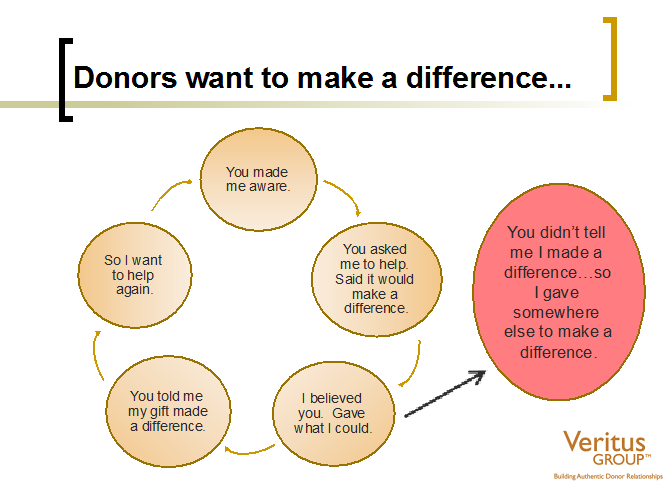The donor made a $5,000 pledge, payable at $100 a month. She stopped giving and the organization said nothing! This is an amazing story of ignorance and neglect – ignorance in that a good fundraiser should know better, and neglect in that this good donor was seriously abused in this relationship.
Here’s the story. I still can’t believe it!
The organization came to this good donor and told her they had some match money. They said, “If you make a pledge to help right now we have another donor who will match whatever you pledge, dollar for dollar.” What a deal. This donor loved the organization and quickly decided that she would make a $5,000 pledge, payable in monthly installments of $100.
The organization gushed and fawned over her gift. There was plenty of love in the air.
Then the organization did a smart thing. They convinced the donor to have the gift automatically paid each month out of her personal bank account. Perfect. Efficient. Good.
And then the whole thing started to go down hill.
The organization had secured the pledge. They had set up a fail-safe collection system. The money was, for all practical purposes, in the bank. End of story. Done. Finished.
And that’s how they behaved. They had gotten their hands on the money. Now it was time to turn their attention to getting more money from other donors. Goodness, what a racket.
Well, when you treat donors this way, it is not surprising that they go away. Why? Because they feel used and unappreciated. So this donor kept up her giving over a number of years – $100 a month, coming out of her bank – cha-ching, cha-ching. And then it dawned on her that no one was paying attention. So, she called her bank and stopped the automatic withdrawals and started sending in personal checks on an irregular basis.
Two things were going on at this moment. First, she was struggling with whether this relationship was really worth it, so she chose to gain more control of the transaction. Secondly, she wanted to see if anyone noticed.
On the organization side, it amazes me that no one did notice! The donor had changed her behavior. An automatic withdrawal had been cancelled. Payments were coming in irregularly. Hello!!?? Please notice. Something is going on. Nope. Crickets.
So, after fulfilling almost $4,000 of her $5,000 pledge, she just stopped giving. Total silence. No activity.
At this point you would think someone in the organization would say, “Where did the donor go?” Nope. Not a word. And here’s where the questions start coming. Did they really have a match? If they did, wouldn’t they miss this money? Did this donor’s gift really matter? Did the donor matter?
Apparently, the answer to all these questions is “no”. The donor didn’t matter. Her giving didn’t matter. Period.
Whew. This is amazing to me. Still, to this day, as I write this, this donor has not heard from the organization. No call. No letter. No “Hey, we miss you.”
THE major cause of donor attrition is that they don’t believe their giving is making a difference. Take a look at the chart below. We start out with big promises and a lot of commitments when we first engage with donors. We tell them what is going on and how they can help. We say their giving will make a difference. And if we do it right, we do show them that their gift made a difference and they want to give again. That’s how it works when it is done right. The cycle goes round and round in a mutually satisfying way.
But don’t tell the donors they made a difference – don’t miss them when they go away – and they just disappear. Pretty sad.

What system do you have set up so you KNOW that a donor is missing? You really should check. And, more to the core issue is this question: What beliefs do you have about donors? Jeff and I have always advised you to value donors as partners, NOT sources of cash. Are you doing that? If you’re not valuing donors as partners, there is trouble ahead.
Don’t treat a donor any differently than how you want to be treated.
Richard






0 Comments
Trackbacks/Pingbacks